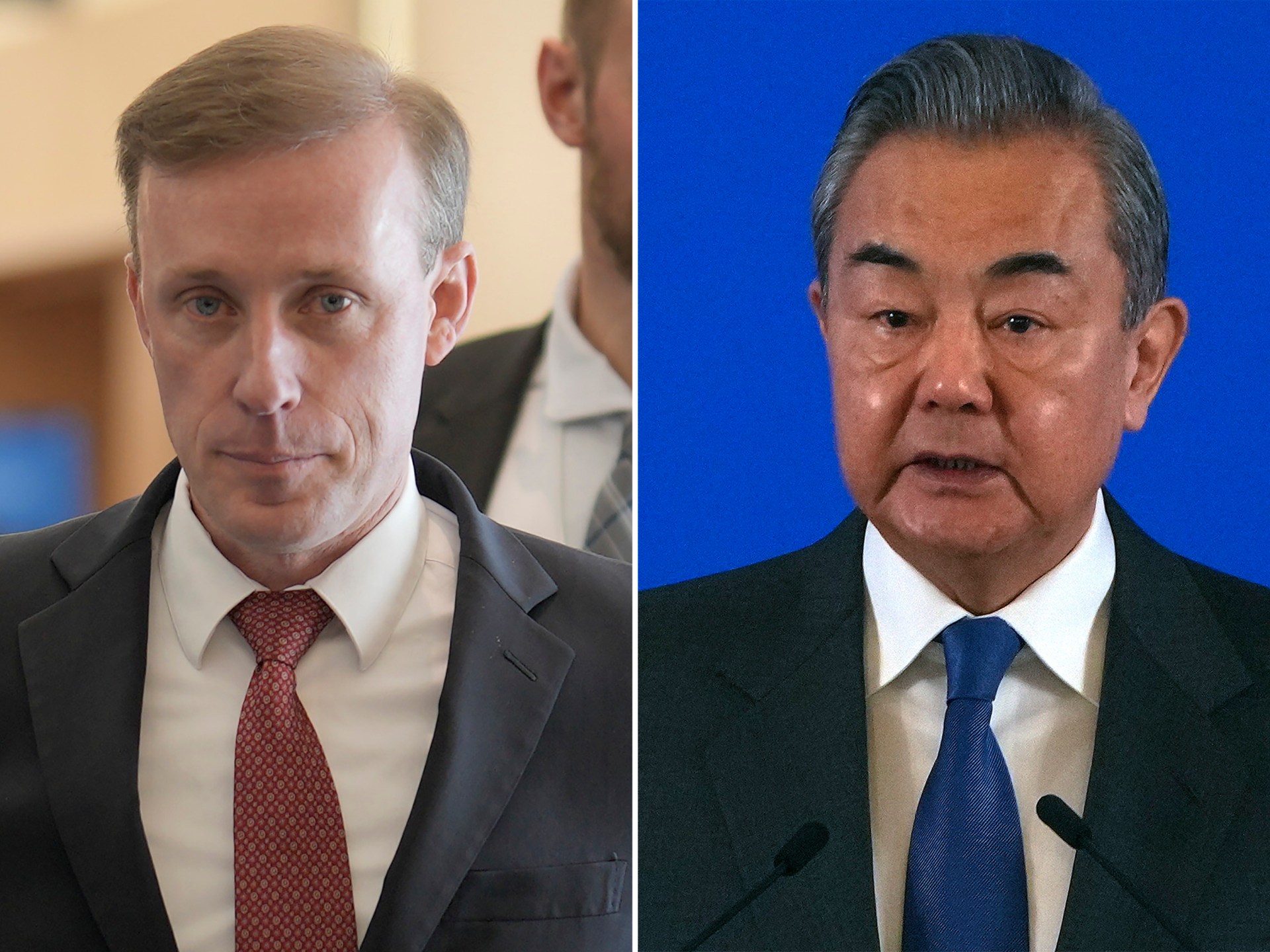
Chinese Foreign Minister Wang Yi and U.S. National Security Advisor Jake Sullivan met to discuss competition and cooperation between the two countries.
Chinese Foreign Minister Wang Yi and U.S. national security adviser Jake Sullivan have held talks to maintain contact, both sides said, with Wang stressing that “Taiwan independence” poses the biggest risk to Sino-American relations.
Wang and Sullivan met Saturday in Bangkok, Thailand, just over two months after U.S. President Joe Biden and Chinese President Xi Jinping met on the sidelines of the Asia-Pacific Economic Cooperation Summit in San Francisco.
The two “had open, substantive and fruitful strategic communication on the implementation of the consensus at the San Francisco meeting… and on the proper handling of important and sensitive issues in China-US relations,” the Chinese said in a statement Ministry of Foreign Affairs.
The White House said the meeting between the officials was “part of an effort to maintain open lines of communication” between the two countries.
It added: “Sullivan emphasized that while the United States and China are in competition, both countries must avoid falling into conflict or confrontation.”
Beijing and Washington have previously clashed over issues of technology, trade, human rights and Taiwan, which China claims as its territory.
Taiwan
In Taiwan’s recent elections, the Democratic Progressive Party (DDP) secured a third term in office. The DPP opposes China’s claim to Taiwan.
This week, two US lawmakers met with Taiwan’s new leader Lai Ching-te to reiterate Washington’s support for the self-ruled island.
This was the second group to arrive in Taiwan since the election, after Biden sent an unofficial delegation to congratulate Lai two days after the election.
But according to the Chinese Foreign Ministry, Wang stressed in the meeting with Sullivan that Taiwan is “China’s internal affair and the regional elections in Taiwan cannot change the fundamental reality that Taiwan is part of China.”
“The greatest risk to peace and stability in the Taiwan Strait is the so-called ‘Taiwan Independence Movement’. “The biggest challenge to China-US relations is also the ‘Taiwan independence movement’,” it said.
Ahead of the meeting, Taiwan’s Defense Ministry said China had sent 33 aircraft, including SU-30 fighters and six naval ships, around Taiwan between 6 a.m. Friday and 6 a.m. Saturday (10 p.m. Thursday – 10 p.m. GMT Friday). Among the aircraft dispatched, 13 fighter jets crossed the Taiwan Strait, an unofficial border between Taiwan and China.
The White House said Sullivan “underscored the importance of maintaining peace and stability across the Taiwan Strait,” without elaborating.
Diplomacy at the highest level
Aside from questions about the Taiwan Strait, officials also touched on other topics including Russia’s war on Ukraine, Iran and the Middle East, North Korea, the South China Sea and Myanmar, the White House said.
Both sides agreed that the two presidents would maintain regular contact, provide strategic guidance for bilateral relations and promote US-China exchanges in various fields and levels, the Chinese ministry said.
The two sides will organize a phone call between President Xi and President Biden as part of “high-level diplomacy” efforts, a White House statement said.
They also agreed to establish a joint working group on counter-narcotics cooperation and establish an intergovernmental dialogue on artificial intelligence.
Sullivan and Wang “acknowledged recent progress in resuming military-to-military communications and noted the importance of maintaining these channels,” the White House added.






Recent Comments